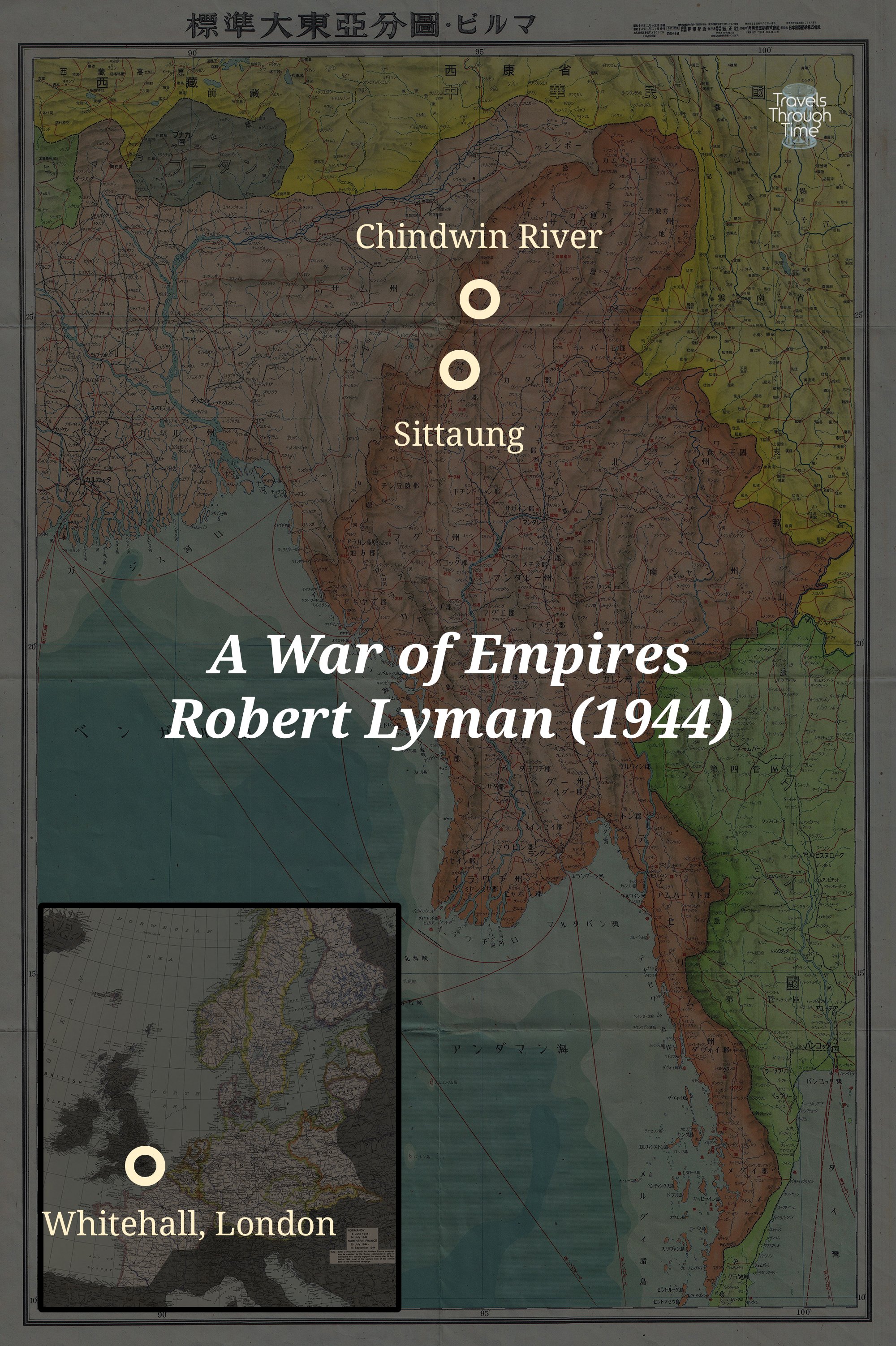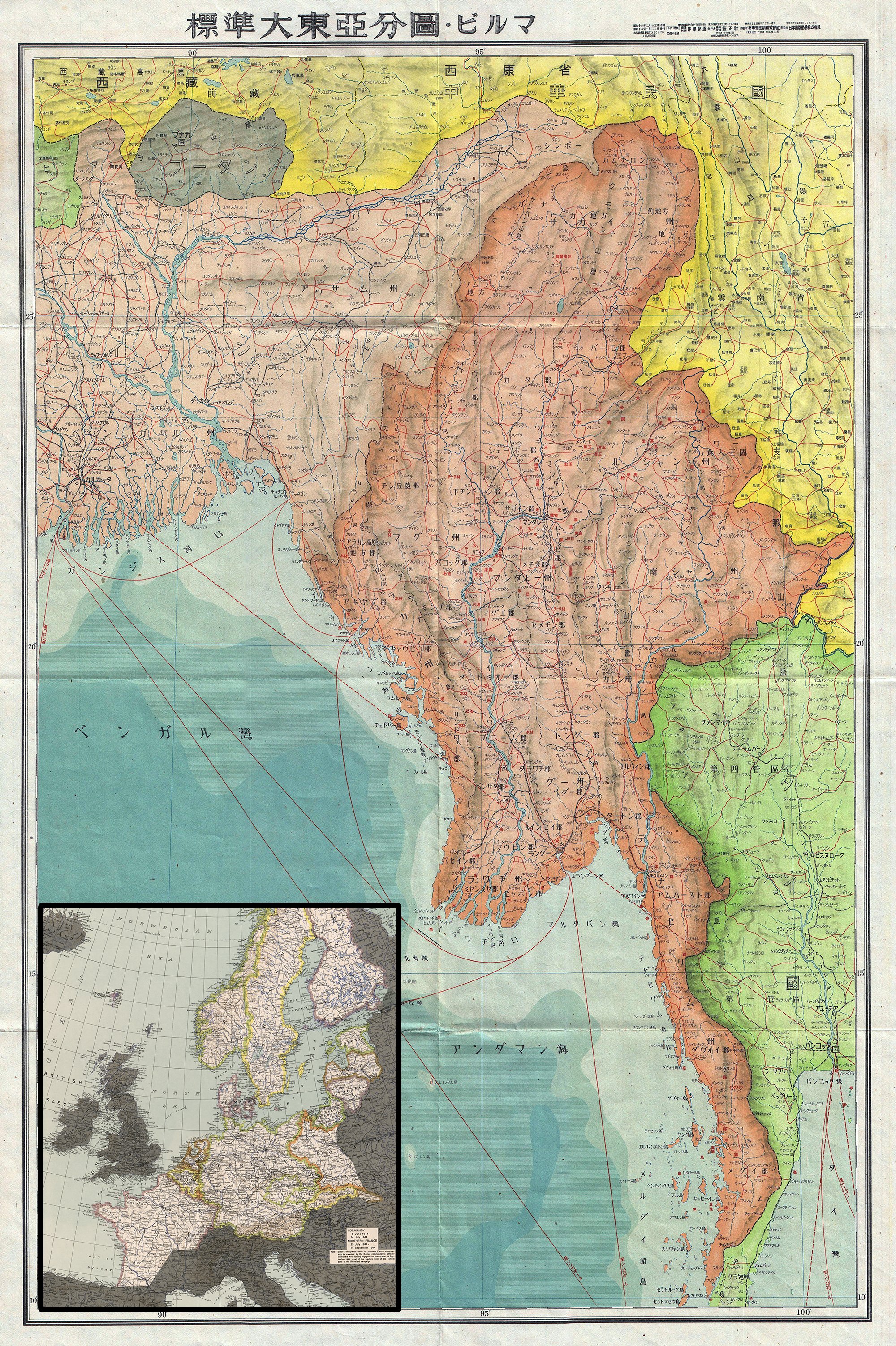A War of Empires: Robert Lyman (1944)
Robert Lyman
As the Second World War wore on, British officials in Whitehall grew wary of reports from Burma. In comparison with operations against the Nazis in Europe, the war against the Japanese in the Far East seemed remote and complex. It was, everyone seemed to agree, a place where it was essential to tread carefully.
In today’s episode the eminent historian Robert Lyman takes us to Burma, the country that was the crucible of action for a range of competing powers. In Burma the invading Japanese confronted the British, India, Chinese and Americans in a story that really was, as Lyman points out, ‘a war of empires.’
*** [About our format] ***
At Christmas in 1941 the Japanese assault on Burma began. In a series of lightning-fast advances over the weeks that followed, much of the country was occupied. As reports reached London, military officials in Whitehall were plunged into a state of denial and panic. First Rangoon in the south was taken, and then, on 1 May 1942 the British abandoned Mandalay. As the Japanese continued to move north, the magnitude of what had happened began to sink in. For the British it had been a cataclysmic defeat.
Robert Lyman is the author of A War of Empires: Japan, India, Burma & Britain, 1941-45. “A culmination of 30 years of thinking about Burma.”
So opened one of the most bitterly contested theatres of action in the Second World War. The riddle of how to recover Burma left the British perplexed. The situation was complex because people understood that Burma was a place in which many forces coalesced. What did the fate of Burma mean for the future of India? What did it mean in the context of the greater Chinese war? What role were the Americans going to play? In Downing Street, Churchill fretted over the challenges of the terrain. Invading Burma from the British positions in the north as not unlike ‘the folly of going into the water to fight a shark.’
Today’s guest, Robert Lyman, has been researching this phase of the war in the Far East for thirty years. In this episode he explains how events in Burma in 1943 took a sudden, decisive turn in 1943-4 through the astonishing leadership of William ‘Bill’ Slim, the GOC of the 14th Army. Slim was a singular character. A veteran of the First World War, he was a charismatic linguist; tactically astute and full of conviction.
In late 1943 Slim set out on the campaign that would make his name. As Lyman describes, one of Slim’s greatest advantages was the revitalised and highly-effective Indian Army. Eighty seven per cent of Slim’s fabulous 14th Army, Lyman points out, was Indian.
In a brilliant speech on the cusp of his 1944 campaign Slim would state that it was ‘the greatest volunteer army the world has ever known.’ To a great extent, Lyman argues, the campaign in Burma was very much “India’s War.”
In this episode we follow the fortunes of Slim and his 14th Army through that decisive year: 1944. The victories that were achieved would be celebrated after the war as a redemption story. As one film proclaimed after the end of hostilities in 1945:
Behind the redemption of Burma lies the dramatic story that is a symbol of the united nations in victory. Their triumph was achieved in a magnificent example of inter-allied co-operation – the combination of the British together with the Indian army, American fighting men and engineers, Chinese division, Burmese levees, and many more whose deeds brought courage and hope to millions all over the world.
***
Robert Lyman is the author of A War of Empires: Japan, India, Burma & Britain, which is published by Osprey Publishing.
Click here to order Robert Lyman’s book from John Sandoe’s who, we are delighted to say, are supplying books for the podcast.
*** Listen to the podcast ***
Show notes
Scene One: The Chindwin River, December 1943, on the border between India and Burma. Men of the Madras Regiment, Indian Army
Scene Two: 1st June 1944, Chief of Imperial General Staff’s office (General Sir Alan Brooke), War Office, Whitehall, London
Scene Three: 10 September 1944, Sittaung, Chindwin River. Men of the 11th East African Brigade, 14th Army.
Memento: A katana (a Japanese samurai sword)
People/Social
Presenter: Peter Moore
Guest: Robert Lyman
Production: Maria Nolan
Podcast partner: Unseen Histories
Follow us on Twitter: @tttpodcast_
Or on Facebook
See where 1944 fits on our Timeline
About Robert Lyman
Robert Lyman is widely regarded as one of Britain’s most talented military historians, with 15 best-selling works of history published to date and numerous appearances on television, including the BBC’s Who Do You Think You Are? and a range of documentaries. He was the military consultant to the BBC for the Victory over Japan memorial celebrations in the UK in 2015 and again for the 70th anniversary in 2020.
He spent 20 years in the British Army and is an elected Fellow of the Royal Historical Society. A frequent traveller to the US, Asia and Australasia, he lives in England.
Map of the Scenes
Background map credit: Wiki Commons // Library of Congress
Chinese soldiers marching along a narrow section of the Burma Road toward the fighting lines on the Salween front.
Portrait of General Slim as commander of the Fourteenth Army.
Watch the unedited conversation on YouTube
Other episodes from 1944
When Time Stopped: Ariana Neumann (1944)
This deeply moving episode of Travels Through Time, Ariana Neumann tells for the very first time the absolutely extraordinary story of her father, Hans, a young Jewish man from Prague, who managed to outwit the Nazis and survive the Holocaust.
D-Day: Dr Peter Caddick-Adams (1944)
Operation Overlord was one of the critical moments of the Second World War. It began on 6 June 1944 when the Allied forces landed around 150,000 troops on the beaches of Normandy in France.
Behind Enemy Lines: Damien Lewis (1944)
In this tense and dramatic episode the Sunday Times No. 1 bestselling author Damien Lewis takes us back to the scenes of two special operations, behind the lines in France, in 1944.



















